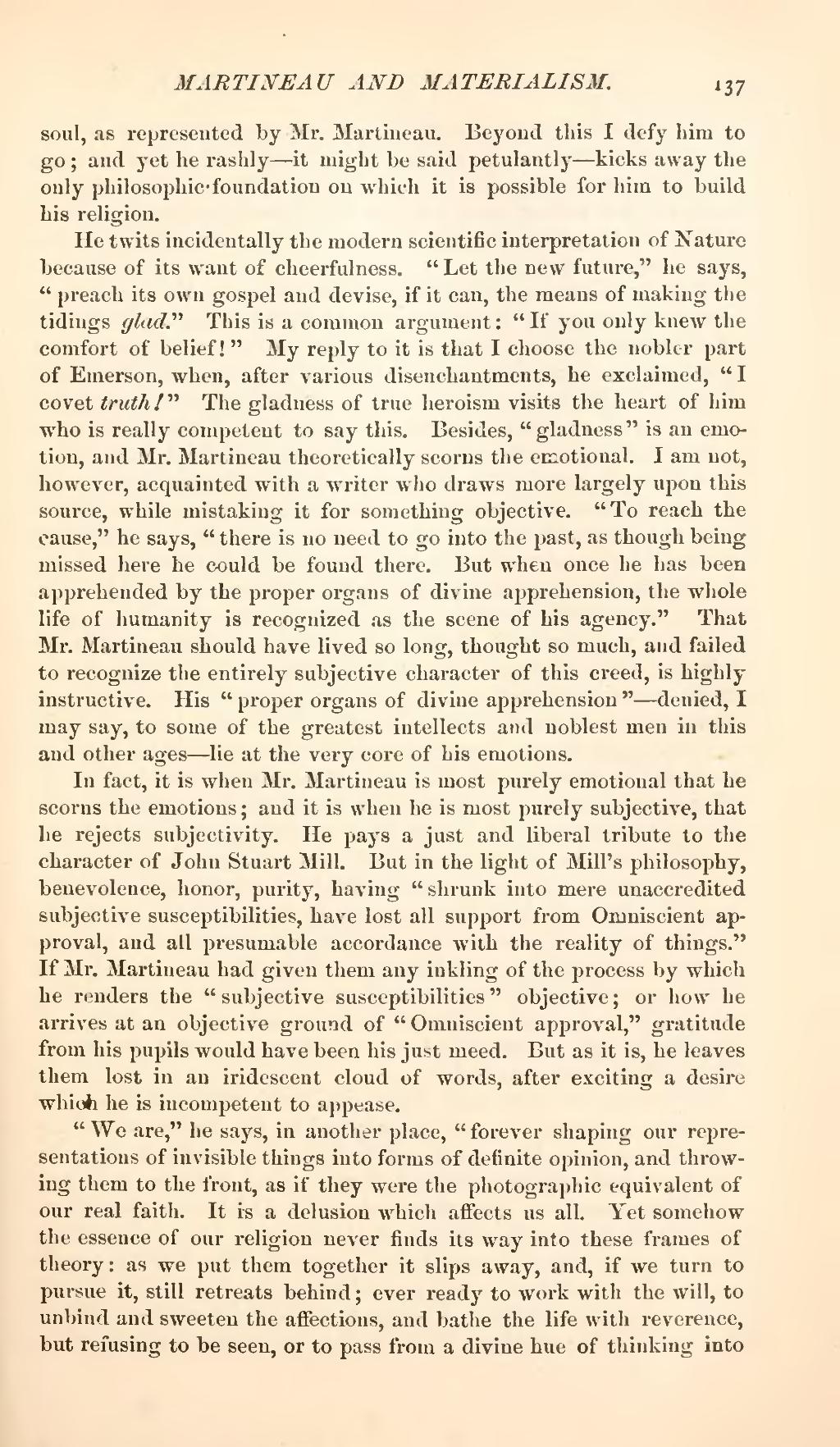soul, as represented by Mr. Martineau. Beyond this I defy him to go; and yet he rashly—it might be said petulantly—kicks away the only philosophic-foundation on which it is possible for him to build his religion.
He twits incidentally the modern scientific interpretation of Nature because of its want of cheerfulness. "Let the new future," he says, "preach its own gospel and devise, if it can, the means of making the tidings glad." This is a common argument: "If you only knew the comfort of belief!" My reply to it is that I choose the nobler part of Emerson, when, after various disenchantments, he exclaimed, "I covet truth!" The gladness of true heroism visits the heart of him who is really competent to say this. Besides, "gladness" is an emotion, and Mr. Martineau theoretically scorns the emotional. I am not, however, acquainted with a writer who draws more largely upon this source, while mistaking it for something objective. "To reach the cause," he says, "there is no need to go into the past, as though being missed here he could be found there. But when once he has been apprehended by the proper organs of divine apprehension, the whole life of humanity is recognized as the scene of his agency." That Mr. Martineau should have lived so long, thought so much, and failed to recognize the entirely subjective character of this creed, is highly instructive. His "proper organs of divine apprehension"—denied, I may say, to some of the greatest intellects and noblest men in this and other ages—lie at the very core of his emotions.
In fact, it is when Mr. Martineau is most purely emotional that he scorns the emotions; and it is when he is most purely subjective, that he rejects subjectivity. He pays a just and liberal tribute to the character of John Stuart Mill. But in the light of Mill's philosophy, benevolence, honor, purity, having "shrunk into mere unaccredited subjective susceptibilities, have lost all support from Omniscient approval, and all presumable accordance with the reality of things." If Mr. Martineau had given them any inkling of the process by which he renders the "subjective susceptibilities" objective; or how be arrives at an objective ground of "Omniscient approval," gratitude from his pupils would have been his just need. But as it is, he leaves them lost in an iridescent cloud of words, after exciting a desire which he is incompetent to appease.
"We are," he says, in another place, "forever shaping our representations of invisible things into forms of definite opinion, and throwing them to the front, as if they were the photographic equivalent of our real faith. It is a delusion which affects us all. Yet somehow the essence of our religion never finds its way into these frames of theory: as we put them together it slips away, and, if we turn to pursue it, still retreats behind; ever ready to work with the will, to unbind and sweeten the affections, and bathe the life with reverence, but refusing to be seen, or to pass from a divine hue of thinking into
